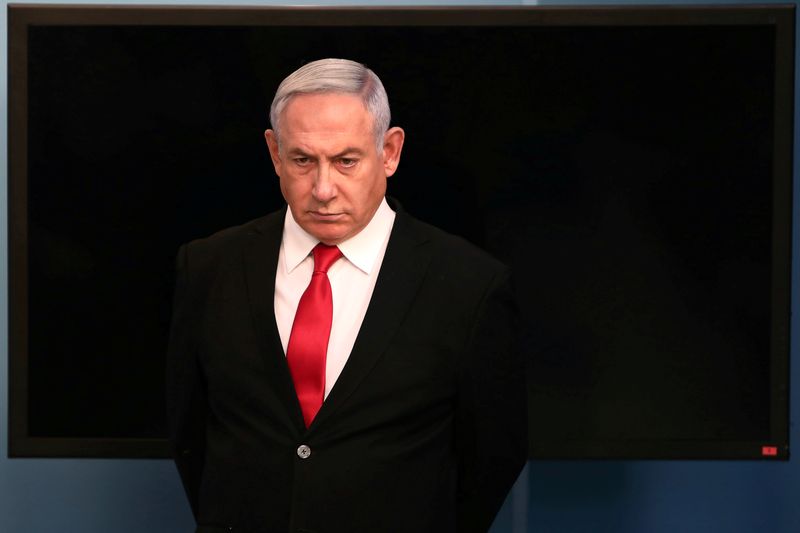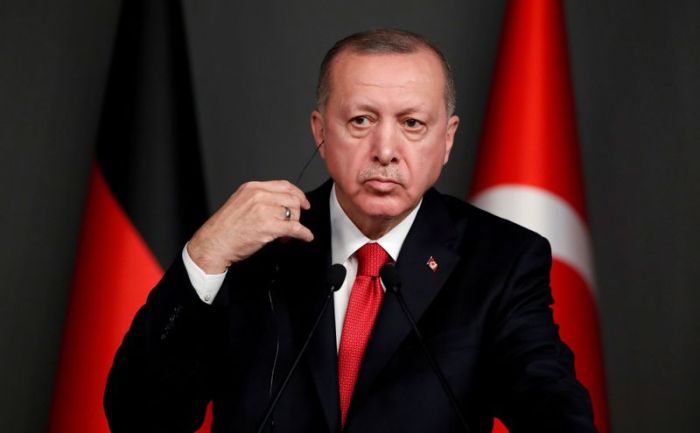JERUSALEM (Reuters) – The planned inauguration on Thursday of an Israeli unity government headed by Prime Minister Benjamin Netanyahu has been postponed until Sunday, an official statement said, in last-minute wrangling over cabinet appointments.
Under a coalition agreement with his former election rival, centrist Benny Gantz, Netanyahu would serve as prime minister for 18 months before the former armed forces chief replaces him.
Their power-sharing deal ends more than a year of political deadlock in which three inconclusive elections were held and Netanyahu was indicted in three criminal cases on corruption charges he denies.
Gantz agreed to delay the government’s swearing-in ceremony to give Netanyahu more time to allocate cabinet posts to members of his Likud party, a joint statement said.
Their pact split Gantz’s centrist party, Blue and White. He cited the coronavirus crisis as a main reason for reneging on campaign promises not to partner with a prime minister under a corruption cloud.
The unity agreement would leave Netanyahu in power throughout a trial due to begin on May 24, the first such proceedings against a sitting Israeli prime minister, enabling him to maintain a powerful public pulpit in fighting back against what he has termed a political witch-hunt.
It also opens the way for the right-wing Netanyahu to move ahead with a pledged de facto annexation of territory in the occupied West Bank – land that the Palestinians seek for a state and which Israel captured in the 1967 Middle East war.
Netanyahu has set July 1 as a starting point for cabinet discussions on his plan to extend Israeli sovereignty to Jewish settlements and the Jordan Valley in the West Bank. He has given no stated deadline for implementing the move.
Annexation, vehemently opposed by the Palestinians who have urged international sanctions against Israel in response, would be certain to heighten tensions in the West Bank and Gaza that could ignite violence and draw international outrage.
On an eight-hour visit to Israel on Wednesday, U.S. Secretary of State Mike Pompeo said in an interview with the Israel Hayom newspaper that West Bank territorial steps were an Israeli decision that Netanyahu had a right to make.
Pompeo noted, however, that the issue was complex and required coordination with Washington, which has formed a joint team with Israel to map out new territorial lines in the West Bank under a Middle East peace plan announced by U.S. President Donald Trump in January.
That proposal envisages the vast majority of West Bank settlements being incorporated into “contiguous Israeli territory”.
(Writing by Maayan Lubell; Editing by Nick Tattersall)




























